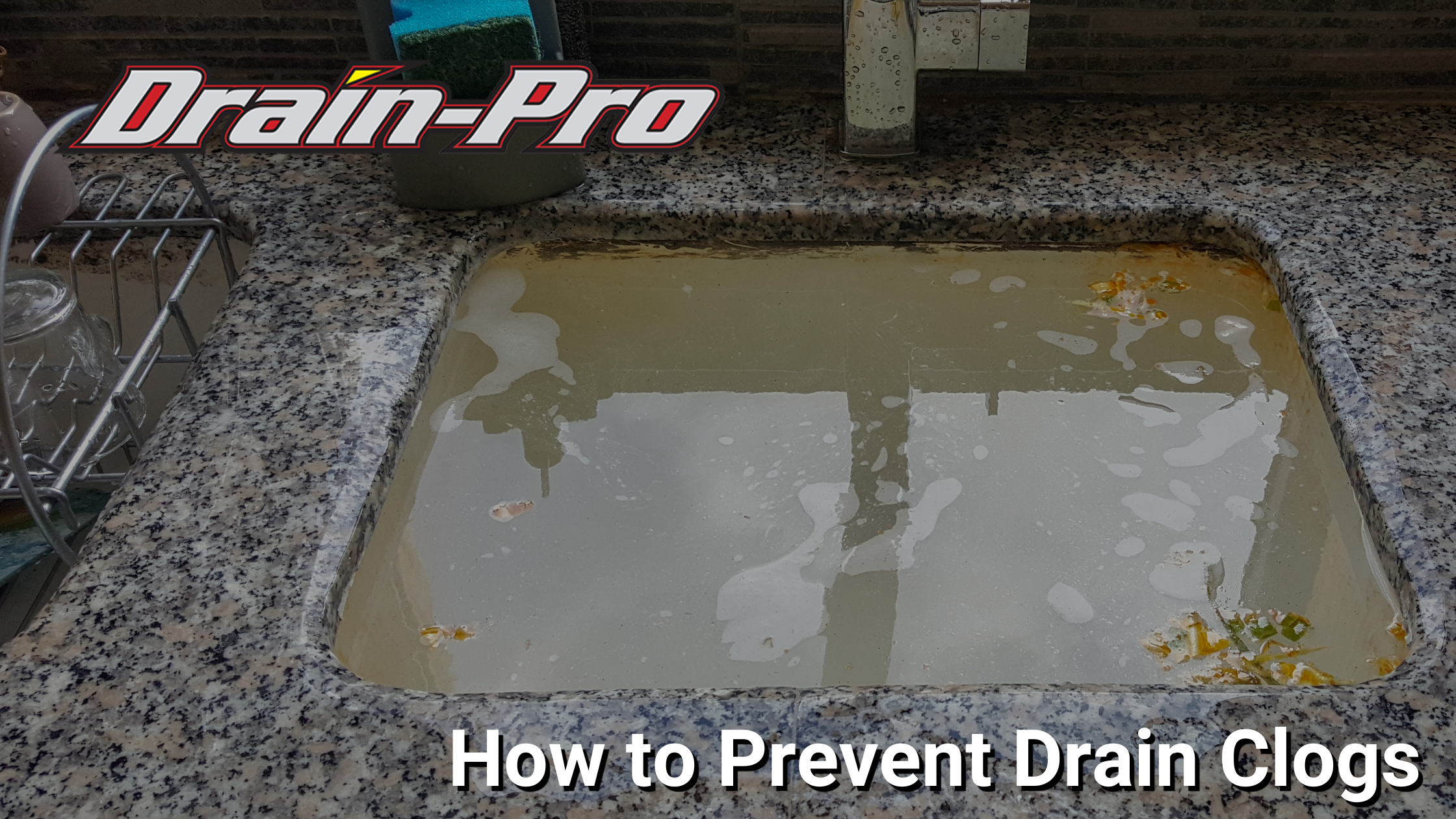Clogged drains and sewer lines are one of the most common plumbing issues homeowners
face, and they can cause serious headaches if not addressed properly. At Drain-Pro, we’ve
seen it all—from minor blockages to full-scale backups that require emergency intervention.
While we’re always here to help when you need us, there are several things you can do to
prevent clogs and keep your plumbing system flowing smoothly.
Before diving into prevention tips, it’s important to understand what typically causes clogs in
your drains and sewer lines. The most common culprits include:
1. Grease and Fat
Pouring cooking grease or fat down your kitchen sink is a surefire way to clog your
pipes. As grease cools, it hardens and sticks to the walls of your pipes, building up over
time and eventually causing blockages.
2. Hair
Hair is a major cause of clogs in bathroom sinks, showers, and tubs. When hair washes
down the drain, it can tangle and catch on other debris, forming tough clogs that are
difficult to clear.
3. Foreign Objects
Flushing non-flushable items like wipes, diapers, paper towels, and feminine hygiene
products is one of the leading causes of sewer line clogs. These items don’t break down
like toilet paper and can create serious blockages.
4. Tree Roots
If you have older pipes, tree roots can invade them, especially if there are small cracks
or leaks. Roots naturally seek out water sources and can grow into your sewer lines,
eventually causing blockages or even pipe damage.
5. Food Scraps
Even if you have a garbage disposal, large food scraps can clog your pipes. Fibrous
foods like celery, potato peels, and coffee grounds are particularly troublesome, as they
can wrap around the blades of your disposal and accumulate in the pipes.
While clogs are a common issue, the good news is that many of them are preventable. By
following these simple tips, you can help keep your drains and sewer lines clear:
1. Dispose of Grease Properly
Never pour grease, fats, or oils down your drains. Instead, allow them to cool and
solidify, then scrape them into the trash. You can also use a grease disposal container to
store used oils until you’re ready to throw them away.
2. Use Drain Strainers
Hair, soap scum, and other debris can easily build up in bathroom drains. To prevent this, use drain strainers in your sinks, showers, and tubs. These simple tools catch hair
and other debris before they have a chance to go down the drain.
3. Be Careful What You Flush
Only flush toilet paper and human waste down the toilet. Items like wipes (even
“flushable” ones), paper towels, and feminine hygiene products don’t break down easily
and can cause serious clogs in your sewer line. Keep a trash bin nearby for these items.
4. Watch What You Put in Your Garbage Disposal
While your garbage disposal can handle small food particles, it’s not designed for large
or fibrous items. Avoid putting bones, fruit pits, coffee grounds, eggshells, or fibrous
vegetables like celery and corn husks down the disposal. Instead, scrape them into the
trash or compost them.
5. Schedule Regular Maintenance
Even with the best prevention practices, it’s a good idea to have your drains and sewer
lines professionally cleaned every 1-2 years. Drain-Pro offers preventative maintenance
services, including hydro jetting, which can clear out any buildup and keep your pipes in
top shape.
6. Be Mindful of Tree Roots
If you have trees near your sewer lines, be aware that their roots can cause blockages
over time. If you suspect root intrusion, call Drain-Pro to inspect your lines and clear any
root growth before it causes major damage.
7. Run Hot Water
After using your kitchen sink, run hot water for a few seconds to help flush any grease or
oils that may have gone down the drain. This simple habit can help prevent buildup in
your pipes.
Even with preventative measures, clogs can still happen. If you notice slow drainage, gurgling
sounds from your drains, or unpleasant odors coming from your pipes, it’s time to take action.
Here’s what you can do:
1. Try a Plunger: A plunger can often clear minor clogs in sinks, toilets, and tubs. Make
sure you have the right type of plunger for the job (cup plungers for sinks and flange
plungers for toilets).
2. Use a Drain Snake: A drain snake can help you manually clear out hair and debris
that’s close to the drain’s surface. Be careful not to push the clog further down the line.
3. Avoid Harsh Chemicals: While chemical drain cleaners might offer a quick fix, they can
damage your pipes over time and are often ineffective against tough clogs. It’s better to
call a professional if the clog persists.
If DIY methods aren’t cutting it, or if you suspect a larger issue with your sewer line, it’s time to
call the professionals. At Drain-Pro, we use advanced tools and techniques to locate and clear clogs quickly and efficiently. Whether it’s a minor blockage or a major sewer line problem, we’re
here to help.
Why Choose Drain-Pro?
● Experienced Technicians: Our team is highly trained and equipped with the latest tools
to tackle any clog, big or small.
● Advanced Technology: We use state-of-the-art equipment like hydro jetting and video
camera inspections to clear clogs and diagnose underlying issues.
● Fast and Reliable Service: When you’re dealing with a clog, time is of the essence.
Drain-Pro offers prompt service to get your system back up and running as quickly as
possible. Don’t let a clogged drain ruin your day! Contact Drain-Pro for expert solutions and preventative


